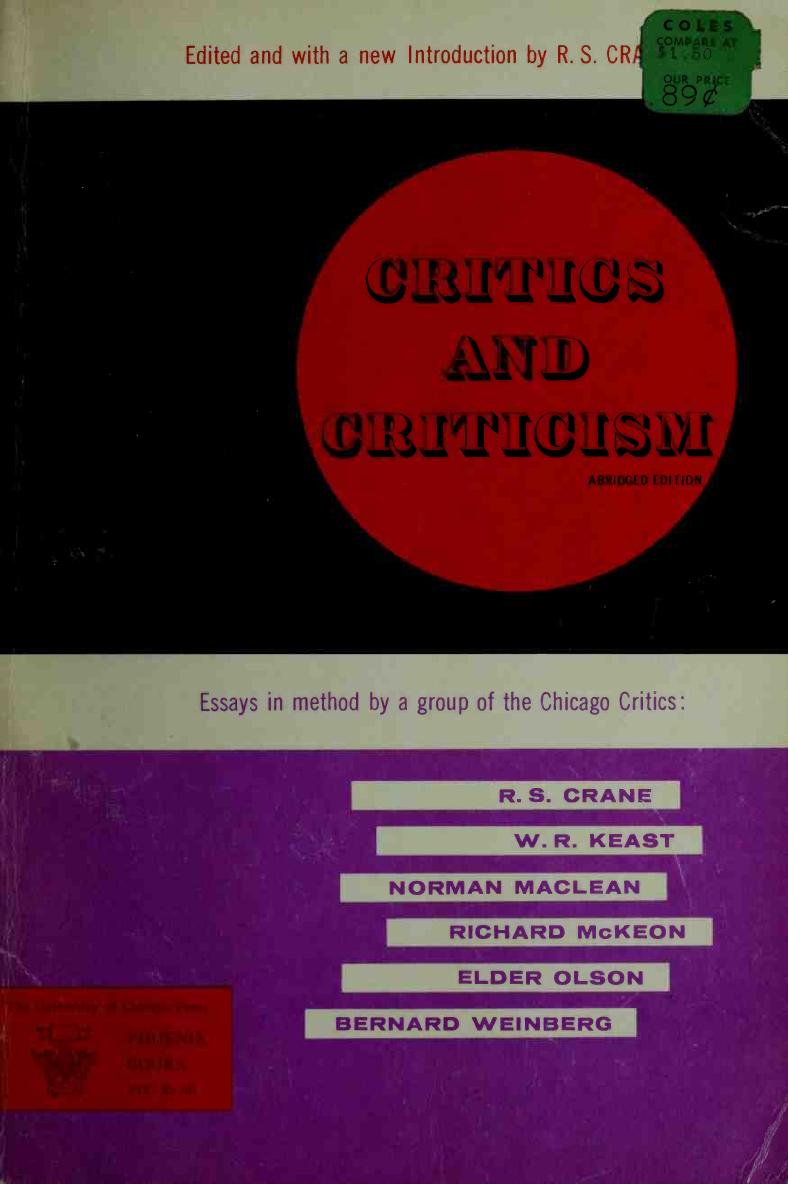

Most ebook files are in PDF format, so you can easily read them using various software such as Foxit Reader or directly on the Google Chrome browser.
Some ebook files are released by publishers in other formats such as .awz, .mobi, .epub, .fb2, etc. You may need to install specific software to read these formats on mobile/PC, such as Calibre.
Please read the tutorial at this link: https://ebookbell.com/faq
We offer FREE conversion to the popular formats you request; however, this may take some time. Therefore, right after payment, please email us, and we will try to provide the service as quickly as possible.
For some exceptional file formats or broken links (if any), please refrain from opening any disputes. Instead, email us first, and we will try to assist within a maximum of 6 hours.
EbookBell Team

5.0
58 reviewsTHE eight essays in this volume were first assembled, along with a dozen
others, in Critics and Criticism: Ancient and Modern in 1952. Since then
that book has been frequently and even vigorously discussed by prominent
critics here and abroad. The discussion has often been conscientious; it has
shown how lively is the concern nowadays with questions of critical method;
and it has brought out many interesting points. Perhaps it would be ungrateful
to insist too strongly that not all of these are relevant to what the Chicago writers
were doing : yet a few matters ought to be set straight if the essays now
reprinted are to be read in the spirit in which they were written.
They were written at a time when controversy among literary theorists centered
chiefly on the "true" nature of poetry and the "proper" character of
criticism. It was therefore natural to ascribe to their writers these same interests
and to assume that they too were engaged in defending a single system of
literary aesthetics and critical procedure. It was easily possible, moreover, by
generalizing from one part of their writings, to discover what this alleged system
was; and so these critics have come to be referred to generally as "The
Chicago Neo-Aristotelians."